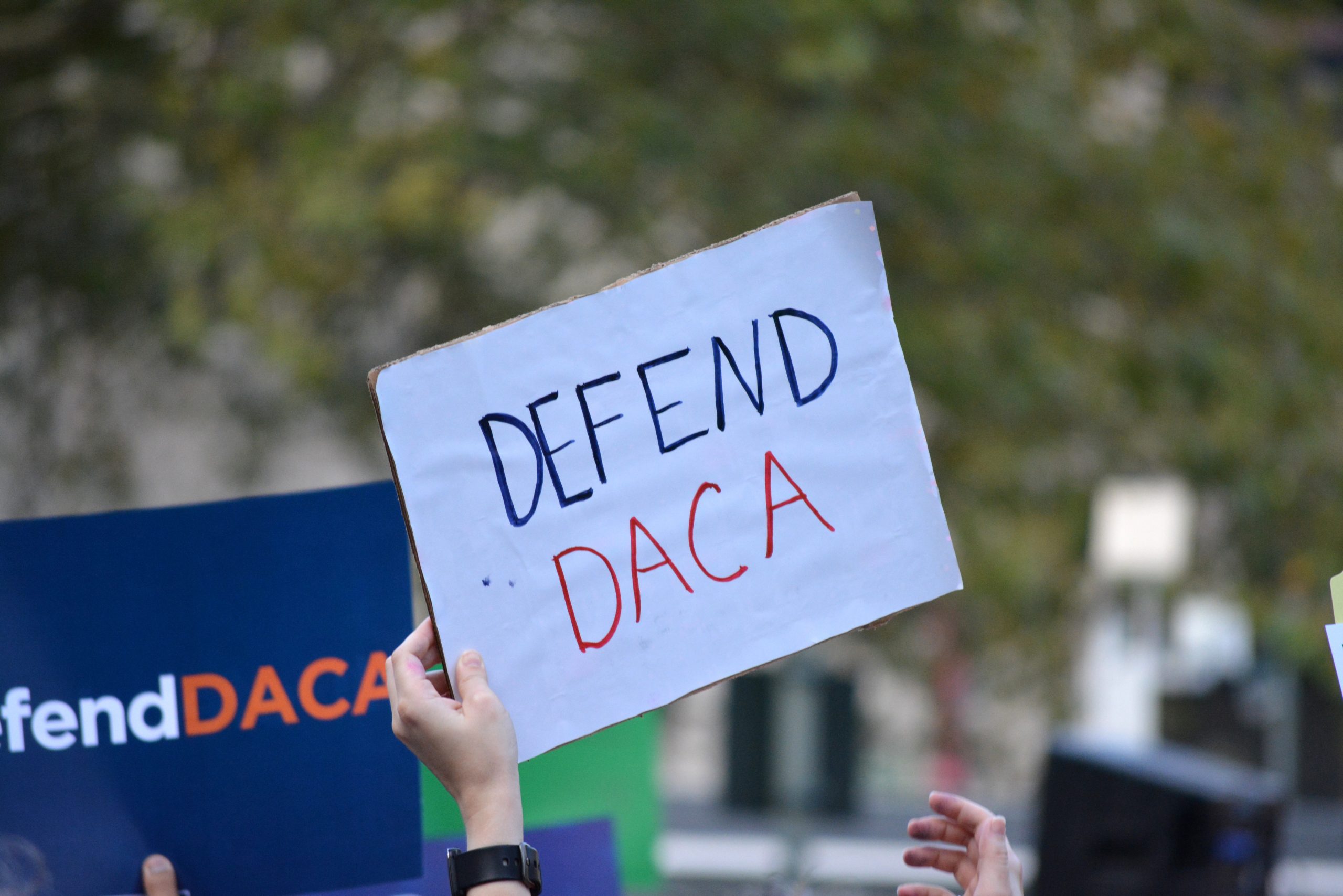By: Oscar Cazares, 2020-2021 AMSA Wellness and Student Life Programming Coordinator
Oscar Cazares is a Post-Baccalaureate student at the University of Texas Rio Grande Valley (UTRGV). He holds a dual degree in Psychology and Biology with a Medical Humanities minor from UTRGV.
What is DACA?
DACA, or Deferred Action for Childhood Arrivals, is a policy that allows certain young undocumented immigrants to apply for immunity from deportation, work authorization, and a social security number. Most states also allow DACA recipients to apply for a driver’s license. The program does not offer a pathway to citizenship or permanent residency. Recipients must renew their status every two years. 74 percent of Americans support offering DACA recipients a pathway to permanent legal status.
The USCIS (U.S. Citizenship and Immigration Services) reported 590,070 DACA recipients last summer. Nearly half of these DACA recipients have been essential workers during the pandemic. Claims have been made that over 41,700 DACA recipients work within the healthcare industry. Other reports also claim 18% of DACA recipients were enrolled in college. It is currently unknown how many DACA recipients are medical students. An estimate of March 2018 was close to 100. Many estimate that DACA medical students will become 5,400 to 31,860 new physicians in the approaching decades.
DACA medical students
DACA students have a proclivity for practicing within primary care specialties in locations in need of healthcare providers, especially in low socioeconomic areas. It is probable that they return to provide primary care in their underserved communities. Additionally, undocumented students are significantly involved in civic activities and community service. As the need for primary care specialists grows, DACA recipients can fill this ever-increasing void.
In 2021, a study of DACA medical students found that all of the participants reported future-related anxiety. The participants claimed that DACA’s uncertain future accounted for this anxiety. This anxiety is compounded by the emotional disturbance that about 30% of medical students in and outside of the U.S. experience. Nonetheless, it is probable that successful DACA students who matriculated into medical school have coping strategies useful for the demanding aspects of medical education.
Defending against challenges to DACA
The latest DACA challenge started in July 2021. Andrew S. Hanen, a federal judge in Texas, ruled that DACA is unlawful based on the claim that DACA was an overreach by President Obama. The ruling temporarily extends DACA for existing recipients, but prevents the approval of new applicants to the program.
The Biden Administration appealed Judge Hanen’s ruling. In September, the Department of Homeland Security submitted a document to propose changes to DACA in order to fortify the policy. The document calls for a 60-day comment period on the updated DACA policy that was necessary for the original DACA 2012 policy to comply with certain regulations. 9,000 people made submissions until the November 29 deadline.
On behalf of the Association of American Medical Colleges, Karen Fisher publically applauded the efforts of Biden’s Administration to formalize the DACA policy. She also urges Congress to provide DACA recipients a pathway to citizenship.
Through AMSA’s Race, Ethnicity, and Culture in Health (REACH) committee, we aim to reduce health disparities among racial, ethnic and cultural groups through advocacy, education, and service. Our collaborative goals include strengthening cultural humility through education, promoting diversity of the physician workforce and empowering future physicians to actively engage in political and social movements toward health equity.
The REACH committee currently has an Education Equity Initiative that seeks to:
- Educate medical students about immigrants’ differential access to higher education.
- Mobilize AMSA members to take action to support Education Equity efforts in their states and regions.
- Support undocumented medical and pre-medical students to achieve their dreams of becoming physicians.
Educate yourself and others
Watch a quick video on the life of Dr. Alfredo Quinones-Hinojosa, a successful Johns Hopkins neurosurgeon who started out as an undocumented student.
Resource for Undocumented Students Pursuing Health Careers
Pre-Health Dreamers – Join the network! Website includes guide to medical school admissions and other useful resources
Get Involved
Support Comprehensive Immigration Reform, which would provide a path to citizenship and enhance educational opportunities for undocumented and DREAM Act-eligible youth.

